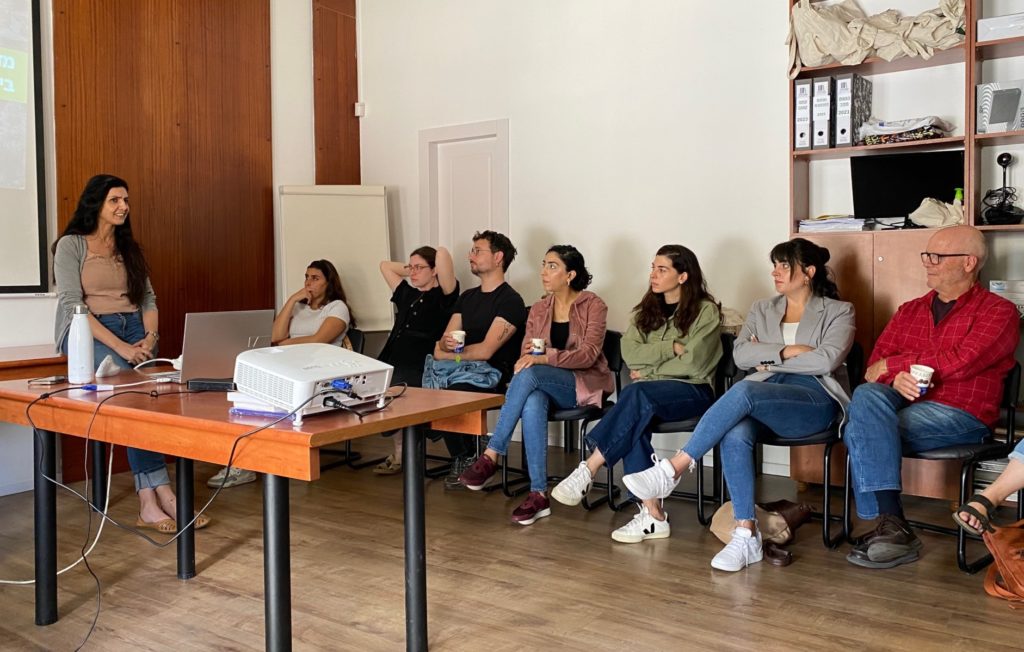Report on the Second Meeting of the Planners’ Course
Impressions from the Dialogue and Lecture by Architect Raneen Odeh on the Obstacles Facing the Arab Population in Israel in the Field of Urban Planning
The meeting took place on May 3, 2024, at the office of the Arab Center for Alternative Planning in Nazareth. Most participants attended – 19 out of 22. Dr. Samer Sweid began with a few words about the center, followed by an open discussion about impressions from the previous meeting and what participants are feeling these days. The participants expressed satisfaction with the first meeting and described the sense that a meaningful dialogue had begun. Here are selected quotes from their remarks:
A Jewish participant: “Since the last meeting, the despair over the state of the country has grown deeper. In the midst of this, we met, and there was a ray of light and hope in this encounter. It made me want to take meaningful action.”
A Palestinian participant: “I found a safe space to speak, and I left with hope. I felt the need to learn more.”
After this initial round, two topics were opened for discussion. The first was about the pro-Palestinian protests at universities worldwide. The Jewish participants expressed mixed feelings about these protests: on the one hand, understanding and agreement with the reasons behind the protests, and on the other hand, a sense of threat and criticism that the protesters are unaware of the complexity of the situation. The second topic, raised by one of the Jewish participants, was the establishment of Arab NGOs in Israel and whether this is a sound policy that could bring about change. In the discussion that followed, one of the arguments made by the Palestinian participants in favor of establishing Arab NGOs was that the importance of this is not as a process of separation but as a process of building and strengthening the Arab-Palestinian minority in Israel.
Afterward, we heard a lecture by architect Raneen Odeh (a graduate of the third cohort of the planners’ course). The lecture was fascinating and eye-opening.
In her lecture, Raneen discussed the main challenges and obstacles in the field of planning for the Arab population in Israel. The primary obstacle to residential construction within Arab localities in Israel is the lack of master plans. The Israeli government has not adequately addressed the needs of the Arab population throughout its existence, and even after the acceleration of master plan preparations in the 1990s, about half of the Arab localities still lack approved master plans, which would enable the expansion of their built-up areas. As a result, a widespread phenomenon of unauthorized construction developed out of necessity. Many houses were demolished by the authorities, and many others have been and continue to be under threat of demolition due to Israel’s discriminatory policies.
National and regional planning in Israel has been guided by several principles:
1. The distribution of Jewish settlements to ensure territorial control. This process is part of a policy of Judaization and nationalization of public space, limiting the areas where Arab localities can expand.
2. The desire of the authorities for Jews to maintain a demographic majority in all regions of the Israeli national space.
For example: In the Northern District, where 53% of the population is Arab, the jurisdictional areas of the 51 Arab local authorities constitute only 12.7% of the district’s land.
After the lecture and lunch, we went on a walking tour of Nazareth, guided by Raed Nasrallah.


—

